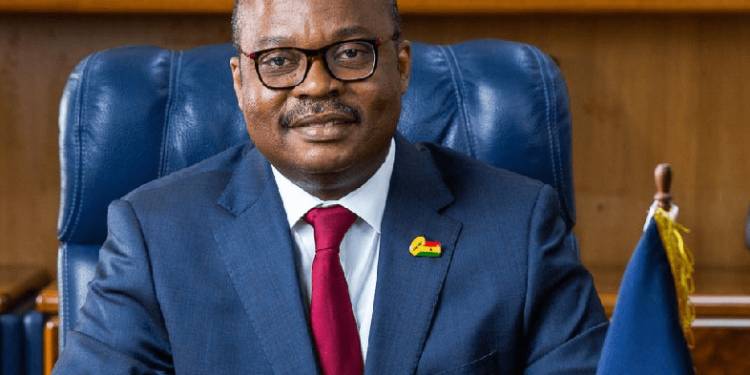The Bank of Ghana (BoG) has officially announced the schedule for its Monetary Policy Committee (MPC) meetings for the year 2025. These meetings are critical to shaping the nation’s monetary policy direction and provide a structured approach to addressing Ghana's economic challenges and opportunities. The schedule outlines the timeline for key discussions and policy decisions, offering clarity to businesses, investors, and the general public about the country's economic strategy.
The MPC meetings are convened to assess Ghana’s economic performance, both domestically and globally, and to make decisions that influence the monetary policy rate. This rate is a pivotal instrument used to manage inflation, stabilize the currency, and foster economic growth.
2025 MPC Meeting Schedule
The first MPC meeting of the year is scheduled for January 22–24, with a press release to communicate the decisions set for January 27. This meeting will set the tone for economic policies in the year ahead.
The subsequent meetings will occur as follows:
- March 25–28: The outcomes will be announced in a press release on March 31.
- May 21–23: Decisions will be communicated on May 26.
- July 23–25: The press release is slated for July 28.
- September 23–26: Outcomes will be shared on September 29.
- November 19–21: The final decisions of the year will be made public on November 24.
The BoG has emphasized its commitment to adhering strictly to this timeline unless unforeseen circumstances necessitate adjustments.
Role of the MPC in Shaping Monetary Policy
The MPC serves as a crucial platform where key economic indicators are analyzed, and monetary policy decisions are made. During these meetings, the committee evaluates the inflation trajectory, currency stability, global economic trends, and other macroeconomic factors to determine whether to maintain, increase, or reduce the monetary policy rate.
This rate directly affects the cost of borrowing and lending, influencing households, businesses, and investors. A high policy rate makes borrowing expensive, discouraging spending and investment, while a lower rate can stimulate economic activities by reducing borrowing costs.
In 2024, the MPC’s last meeting ended with the monetary policy rate held steady at 27 percent. The committee's decision reflected its aim to curb inflationary pressures and stabilize the Ghanaian cedi, which had experienced significant depreciation earlier in the year.
Challenges in Managing Inflation
Inflationary pressures remain one of the critical issues for the MPC. The committee’s November 2024 press statement highlighted key factors contributing to inflation, including volatile food prices, the residual impact of currency depreciation, and adjustments in fuel and utility tariffs.
“Inflation projections show a slightly elevated profile driven by high and unstable food prices, pass-through of previous exchange rate pressures, fuel prices, and utility tariff adjustments. The price increases in food items have been steep in the course and, together with a fast-paced depreciating currency earlier on in the year, they have altered the inflation trajectory and stalled the disinflation process,†the committee noted.
The policy decision to maintain the rate at 27 percent reflected a cautious approach to managing these inflationary drivers while minimizing economic disruption.
Economic Implications of the MPC’s Decisions
The MPC’s deliberations and outcomes significantly impact Ghana’s economy. By adjusting the monetary policy rate, the Central Bank influences:
- Borrowing Costs: A high rate discourages borrowing by businesses and households, helping to control inflation but potentially slowing economic growth. Conversely, a lower rate encourages borrowing and investment, stimulating economic activities.
- Foreign Exchange Stability: Changes in the policy rate can attract or deter foreign investments, affecting the value of the Ghanaian cedi.
- Inflation Management: Adjustments in the rate help control inflation by influencing spending and saving behaviors.
For businesses, the MPC’s decisions provide critical insights into the cost of capital, investment planning, and pricing strategies. For individuals, these decisions impact mortgage rates, loan costs, and savings returns.
Looking Ahead to 2025
The 2025 MPC meetings come at a time when Ghana’s economy is navigating several challenges, including post-pandemic recovery, global economic uncertainties, and domestic fiscal constraints. With a focus on inflation control and economic stabilization, the committee’s decisions will be closely watched by stakeholders.
The BoG’s transparent approach to announcing the MPC schedule reflects its commitment to fostering economic stability and maintaining public trust. By providing clear timelines for policy decisions, the Central Bank ensures predictability, a crucial factor for economic planning and investment confidence.
As Ghana moves into 2025, the MPC will play a central role in shaping the nation’s economic landscape. Its decisions will not only address immediate challenges but also set the stage for long-term growth and development.
The BoG has reiterated its dedication to transparency and accountability, ensuring that its monetary policies align with the broader goal of promoting economic resilience and prosperity for all Ghanaians.




No comments yet
Be the first to share your thoughts!